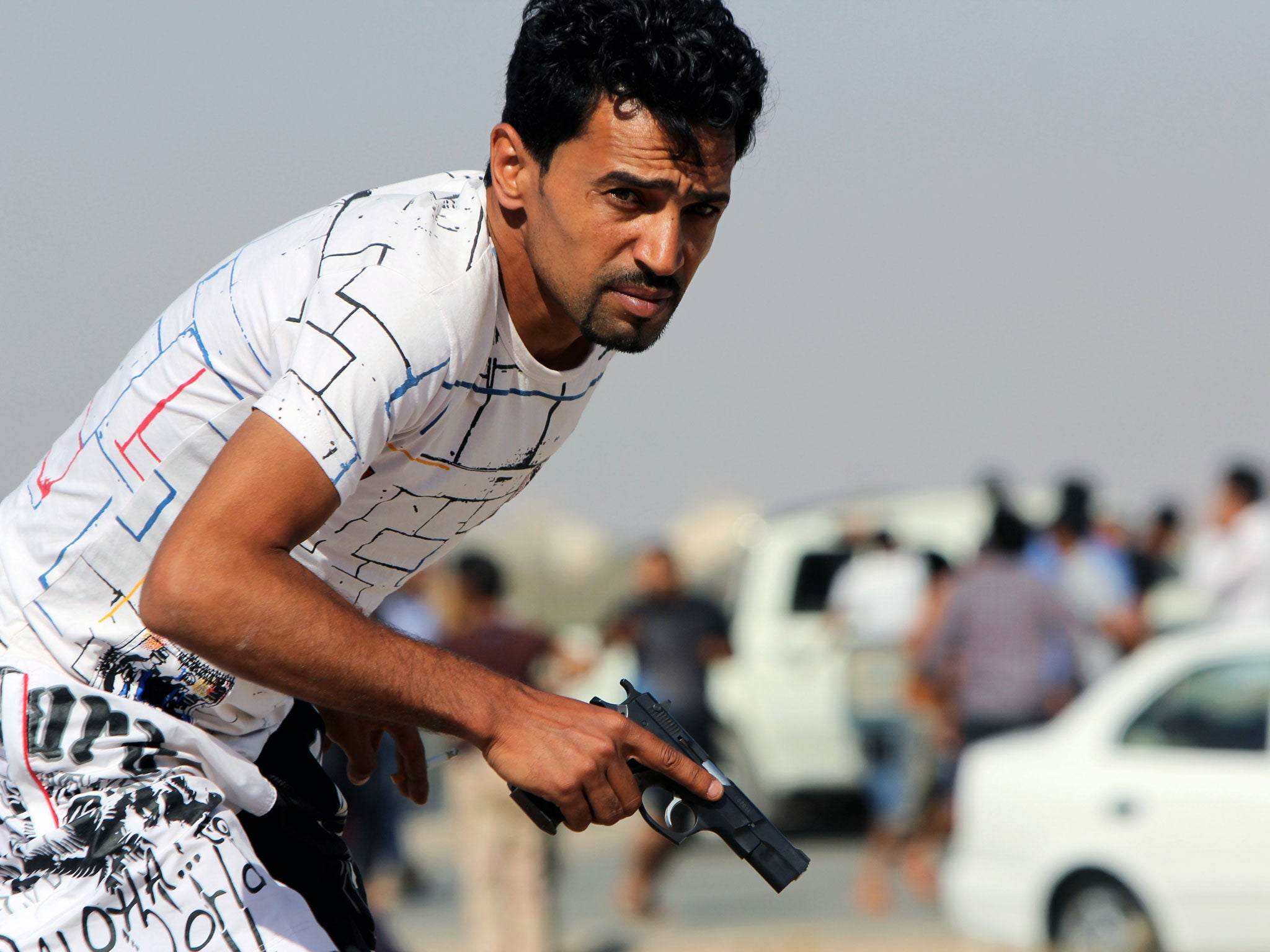Lawless Libya: The growing list of unsolved murders
Two years after Gaddafi was overthrown, a weak government is struggling as the killing continues

It is exceedingly easy to get away with murder here. Just ask any Libyan.
Who killed more than 50 police officers, soldiers and judges here and in the eastern city of Darna this year?
Who started the fire that claimed the lives of US Ambassador Christopher Stevens and another American at the US diplomatic mission here just over a year ago?
Who launched the mortar rounds that killed two CIA contractors that same night?
Or who bears responsibility for the 2011 torture and killing of Abdul Fattah Younis, the Gaddafi-era military commander who defected to lead the rebels?
“Do you live on Mars?” asked Hashem Bishr, the hard-line Salafist leader of a powerful Tripoli militia.
To understand Libya’s unsolved murder mysteries, understand this, Mr Bishr said: “It’s just not a good time.” What he meant is that there are people who know the answers – they’re just not willing to share.
Tripoli’s weak authorities have promised to investigate the killings. “But until now, there is nobody in detention. Nobody has been charged. And according to our knowledge, no one is being investigated,” said Hanan Salah, a Libya researcher for Human Rights Watch. The government, she said, lacks the technical capacity to do so.
But there is also a powerful element of fear. More than a year after the deadly attack on the US mission, the port city that was the birthplace of Libya’s 2011 revolution has become the epicentre of a shadowy campaign of assassinations and bombings. Most of the killings have targeted police and army personnel, along with a handful of judges and a political activist.
“The pale truth is that this is a bleeding city – a city that has a lot of losses every day,” said Fathallah Bin Ali, a Benghazi businessman who allies himself with the federalists, a faction in eastern Libya that is holding the region’s oil infrastructure hostage to extract more control from the government.
In recent months, mysterious early morning bombings have targeted two courts, a wedding hall and a popular café. No one was killed. But the intent, residents say, was intimidation.
Mohamed al-Bargathi said he has no desire to mend the façade of his once-bustling café, the Rotana, which was shattered last month by a homemade bomb in a bag left on the front steps. “I’m afraid they’ll just bomb it again,” he said. “If we knew who did it, we would kill him and reopen. But we don’t know who did it.”
Many here say that Benghazi is a microcosm of Libya’s larger struggles.
On a normal afternoon, political opponents and rival militia leaders can be seen warily eyeing one another over espressos from across hotel lobbies.
The Libyan special forces, resurrected from a force that existed before the revolution, man camouflaged gun-trucks at central road junctions and participate in a “joint-security operations room” to manage the city’s security.
But their Islamist militia rivals have their own security operations room – their own bases and, sometimes, their own checkpoints.
Depending on whom you ask, just about every armed group around here is guilty of killings, theft and human rights abuses.
©The Washington Post
Join our commenting forum
Join thought-provoking conversations, follow other Independent readers and see their replies
Comments